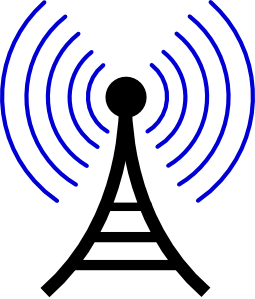Teaching yourself a foreign language is one of the most difficult endeavors to undertake. There are 4 main skills – reading, listening, writing and speaking. Of the 4, speaking is probably the hardest for most people, partly due to fear of sounding funny and partly due to the lack of natives to converse with. Reading and listening are easier, since material is usually more readily available, and having audio samples that correspond to written text is always a valuable resource.
On the RÚV website, you can actually listen to the text of a story being read by a quite realistic voice – just look for the button labeled Hlustsa in the social media box. The text will be read at a very moderate speed, perfect for anyone learning Icelandic 🙂 One strategy is to find a relatively short story, read through it and look up any words you don’t know. Then listen to the audio several times, both following along with the text and just listening. Read the text out loud – pretend Bogi Ágústsson called in sick and you are filling in for him on Tíufréttir 🙂 You can even record yourself and compare it to the audio to help with improving your pronunciation.
There are several Icelandic words ending in -varp which refer to various types of broadcasts:
út·varp – radio
sjón·varp – television
hlað·varp – podcast
texta·varp – teletext
We’ll use útvarp as an example, but they all decline the same way, as neuter nouns:
| út·varp (n) – radio | ||
|---|---|---|
| singular | plural | |
| nom | útvarp | útvörp |
| acc | útvarp | útvörp |
| dat | útvarpi | útvörpum |
| gen | útvarps | útvarpa |
I’ll be honest, there are two similar verbs for throw, varpa and verpa, and I’m not sure which one is the source of the above words. Any native speaker help is appreciated. I think it’s this one:
| að varp/a v (dat) – to throw, cast | ||
|---|---|---|
| present | past | |
| ég | varpa | varpaði |
| þú | varpar | varpaðir |
| það | varpar | varpaði |
| við | vörpum | vörpuðum |
| þið | varpið | vörpuðuð |
| þau | varpa | vörpuðu |
Another -varp word is
and·varp – sigh
from andi – breath.
And a couple of words related to broadcasting:
rás f (-ar, -ir) – channel
dag·skrá f (-r, -r) – programming schedule
út·sending f (-ar, -ar) – broadcast, transmission
Morgunútvarpið á Rás 2…alla virka morgna frá korter í sjö til níu…
I think RÚV can be a great resource for people learning Icelandic; you can find examples of each of the broadcasts mentioned in this post, so make use of them in your studies. Watch the daily television broadcasts, listen to the radio shows or subscribe to a podcast. Try to listen every day, even just for a few minutes, and see how many words you can recognize. Don’t be discouraged if you can’t make much out at first, it just takes time. I’ve been at it over a year and I still can’t understand a lot of what I hear, but I can tell I’ve slowly gotten better over time. Eventually you’ll start recognizing words, then phrases, and entire sentences. Just keep at it!

